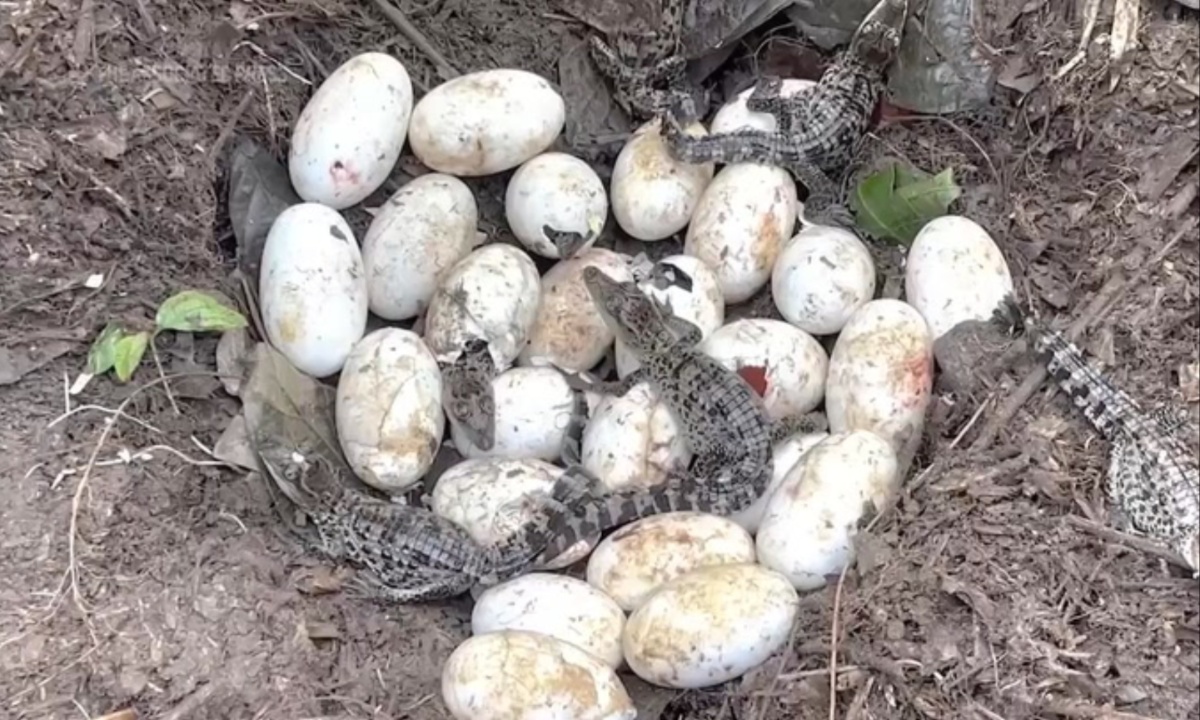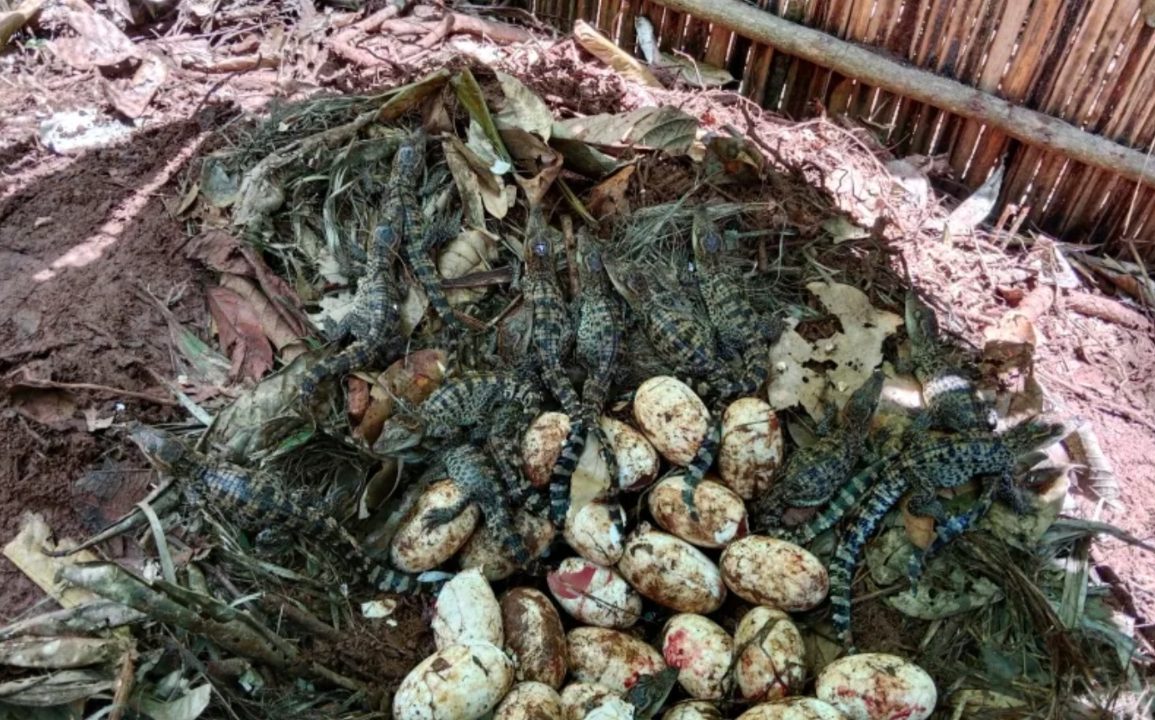Conservationists in Cambodia have made a significant discovery of 106 eggs belonging to the rare Siamese crocodile species in the Cardamom National Park, marking the largest find in the last two decades. This discovery offers renewed optimism for the survival of the world’s rarest crocodile species in the wild, a crucial development given the species’ critically endangered status.
The eggs were found in May, and by the end of June, 60 of them had successfully hatched. This information was shared in a joint statement by Cambodia’s ministries of agriculture and environment along with Fauna & Flora, a conservation group. The successful hatching indicates the area is a vital habitat for these crocodiles, underscoring the park’s importance in the species’ recovery efforts.

Rangers from the Cardamom National Park Wildlife Sanctuary have been actively protecting the site and the newly hatched crocodiles. The Siamese crocodile, once widespread across Southeast Asia, has faced severe threats from poaching, habitat destruction, and crossbreeding with other crocodile species, leading to its near disappearance by the 1990s.
Cambodian Environment Minister Eang Sophalleth emphasized the importance of conservation and habitat restoration for these crocodiles. He highlighted that the successful hatching in Cardamom National Park demonstrates the area’s suitability and safety as a habitat, which is crucial for the species’ role in the ecosystem and its long-term survival.
Currently, it is estimated that only about 1,000 Siamese crocodiles remain in the wild, with over 300 residing in Cambodia. Previous discoveries in 2017 and 2021, including eggs and hatchlings in different parts of the country, had already sparked hope for the species’ survival, and the recent find further bolsters these conservation efforts.

